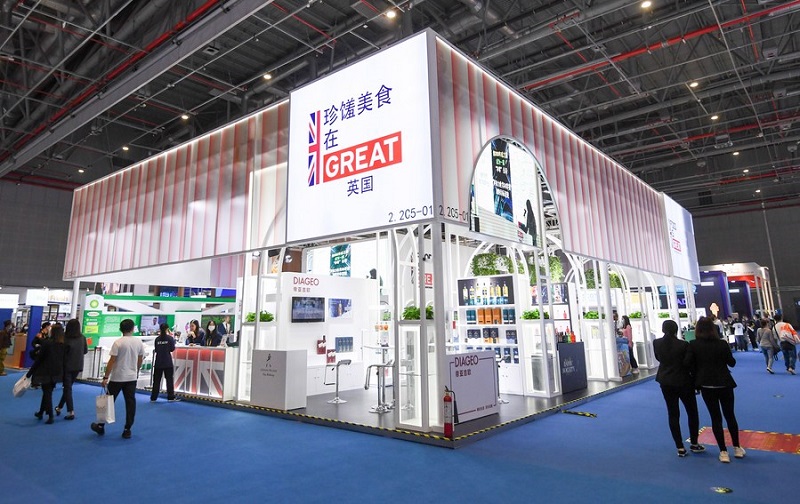To anyone living in China, the notion that China is a threat of Britain is ludicrous. Yet, this is what an influential group of British parliamentarians is advising.
To understand why the parliamentarians are influential, it is necessary to understand a little about British parliamentary procedures.
Britain is often described as being an ‘elective dictatorship’. The political party with most candidates elected to become members of parliament (MPs) forms the government, invariably with its leader chosen to be prime minister (albeit formally appointed by the monarch).
The winning party typically has more MPs than the sum for all other parties and so can introduce whatever legislation and policies it wishes over the five-year term of a parliament. MPs who are not members of the ruling party therefore have little direct influence on policy – except by sitting on a parliamentary committee, the membership of which reflects the overall number of MPs belonging to each party. So-called select committees oversee the work of specific government departments; they can decide on their activities, hold enquiries and appoint expert advisors.
The parliamentarians advising that China threatens Britain belong to the Foreign Affairs Committee. It is chaired by Alicia Kearns from the ruling Conservative party who, before being elected to parliament, worked in communications – neutrally termed ‘propaganda’ in China – for the ministries of defence, justice and foreign affairs.

The U.K. flags are seen during a protest outside the Houses of Parliament in London, Britain, on Mar. 29, 2019. (Photo/Xinhua)
The proposition that China is a threat to Britain was contained in the Committee’s fifth report of the 2022/3 parliamentary session published in December 2022 and was widely covered by the British media including by the BBC. Specifically, the report states that ‘We [the Committee] would support the Government changing the language from “systemic competitor” to “systemic threat”’, adding that the change must be ‘accompanied by carefully calibrated and proportionate policy change rather than empty rhetoric’.
It should be noted that the Government has not publicly announced any intention of changing its language, while the evidence received by the committee was firmly against such a move.
The extensive media coverage reflects the official press release which, with extensive quotations from the Chair, adopts a hawkish attitude towards China. Kearns opines, without evidence in the report, that ‘over the past decade, the Chinese Communist Party has sought to tighten its authoritarian grip and has demonstrated a callous disregard for human rights.’ Moreover, rather than referring to ‘carefully calibrated’ policy, she states that ‘any redesignation of China’ must be ‘coupled with substantial new policies and action’.
Britain has no written constitution and select committees are a vital means of holding the executive accountable through high quality and non-partisanship analysis. It is important, therefore, to understand why the system failed so spectacularly on this occasion.
The Committee’s enquiry focussed on the government’s integrated review of security, defence, development and foreign policy, ‘Global Britain in a competitive age’, published in March 2021. The Review had been undertaken because Britain, having left the European Union, lacked the economic security of belonging to a large trading bloc. Borrowing words from the forward to the Review – penned by Boris Johnson, then prime minister – Britain ‘free to tread our own path’ needed to ‘be open to the world’.
The Review’s reference to ‘a competitive age’ is revealing. Britain’s political right views competition as important in all walks of life, selecting on excellence and driving innovation. Hence, the Review emphasises Britain’s need to maintain its ‘competitive edge’. But competition also bifurcates the world into winners and losers and so the Review speaks of ‘defending our democratic institutions and economy’ and designates China as a ‘systemic competitor’, Russia as a ‘threat’.

Photo taken on Nov. 7, 2020 shows the exhibition booth of Great Britain at the Food and Agricultural Products exhibition area during the third China International Import Expo in Shanghai, east China. (Photo/Xinhua)
Liz Truss, during her 44 days as prime minister, announced that she intended to ‘refresh’ the Review, something that Rishi Sunak, her successor, has agreed to continue. The Foreign Affairs Committee therefore sought to influence this ‘refreshment’ but, in stating this intent in the introduction to its report, it betrays its partisanship: ‘We cannot accept a refreshed document that is based on empty rhetoric or overly-ambitious posturing.’
Select committees can call for evidence and hold oral sessions with experts. An inquiry on the same integrated review was conducted by the International Relations and Defence Committee of the House of Lords (the upper parliamentary chamber) and published in September 2021. It took oral evidence from 31 witnesses and received written contributions from 57 persons and organisations. The Foreign Affairs Committee, however, heard from only five witnesses, three in the session focussed of China.
Moreover, only four of the 11 members of the committee attended the oral hearings. According to their personal political websites, two members in attendance belonging to the ruling Conservative Party do not claim to have specialist knowledge of China or foreign affairs. They asked witnesses a total of seven questions compared to the 13 posed by the chair and 17 by Stewart Malcolm McDonald, a Scottish Nationalist MP.
In the session, McDonald admitted that he had ‘a mild obsession’ with Confucius Institutes, education centres to promote Chinese language and culture funded by the Chinese International Education Foundation. He wanted them closed or reduced in number. He is also a member of the Inter-Parliamentary Alliance on China (IPAC), founded to promote ‘a coordinated response between democratic states to challenges posed by the present conduct and future ambitions of the People’s Republic of China’. IPAC is funded by two U.S. foundations, the Open Society Foundations and the National Endowment for Democracy, and one based in Taiwan island (the Taiwan Foundation for Democracy).
Professor Tim Summers (Chinese University of Hong Kong) and colleagues, writing on the worsening British perceptions of China in the academic Asia Europe Journal in 2022, consider IPAC to be one of two parliamentary groups whose ‘predominantly unfavourable views of China’ are shaping negative attitudes.
The other parliamentary organisation named was the China Research Group (CRG), a grouping of Conservative parliamentarians, which Summers and colleagues suggest is ‘widely seen as advocating a more “hawkish” British policy towards China’. The CRG is chaired by Alicia Kearns who also chairs the Foreign Affairs Committee.

Children show dance lion souvenirs after the screening of a Chinese animation in London, Britain, on Feb. 26, 2022. (Photo/Xinhua)
None of the oral witnesses nor any of the 28 written submissions suggested that China should be considered a systemic threat. Sir Malcolm Rifkind, who gave evidence in person and was Foreign Secretary from 1995 to 1997, was cited most often in the Committee’s report. However, his reasoning for believing that China was not a systemic threat was not reported:
China’s aspiration is not to dominate the world. China’s aspiration is to be accepted and respected as the most important power in the world one day… it does not want to impose, so far as I can tell, … a social and economic system or political system as the Soviets did.
The Report mentions only four of 20 submissions referring to China. Two, one from the Taiwan Policy Centre and another from Lord Howell, referenced Taiwan. (Only the summary of Howell’s submission has been published, thus preventing verification). In the Committee’s press release, Kearns is quoted as saying: ‘We hope that the updated Integrated Review addresses tensions in the Taiwan strait head on’. The Report makes no recommendation on Taiwan.
Contributions not cited encourage continued engagement. The Royal Institute of International Affairs states that ‘the UK needs to learn how to live in a world where Chinese power and influence will continue to grow’ by investing in ‘increased Asia literacy at home’ to ‘sustain increased in business and political links with the region’. Dr Nick Kaderbhai and Professor Andrew Dorman (Kings College, London) separately insist that ‘the UK must remain flexible’ and note the impossibility of ‘balancing both an economic trading relationship with China whilst also looking at China as a threat’. The United Nations Association (UK) calls ‘for principled and pragmatic engagement with countries such as China’.
To justify the change from ‘competitor’ to ‘threat’, by suggesting ‘heightened international pressure from China’ and ‘malign Chinese engagement in the developing world’ which evidence submitted did not support, the Report cites an article by Chris Cash, the Director of the CRG. Whereas, all members of the corresponding House of Lords committee listed their interests, Kearns does not report her conflict of interest in chairing the CRG.
The reality is that the Foreign Affairs Committee found no evidence that China is a threat to Britain. However, distortions in its report and press release, approximating to propaganda in the negative sense of the term, suggest that the CRG threatens the integrity of British democracy.
The article reflects the author’s opinions, and not necessarily the views of China Focus.